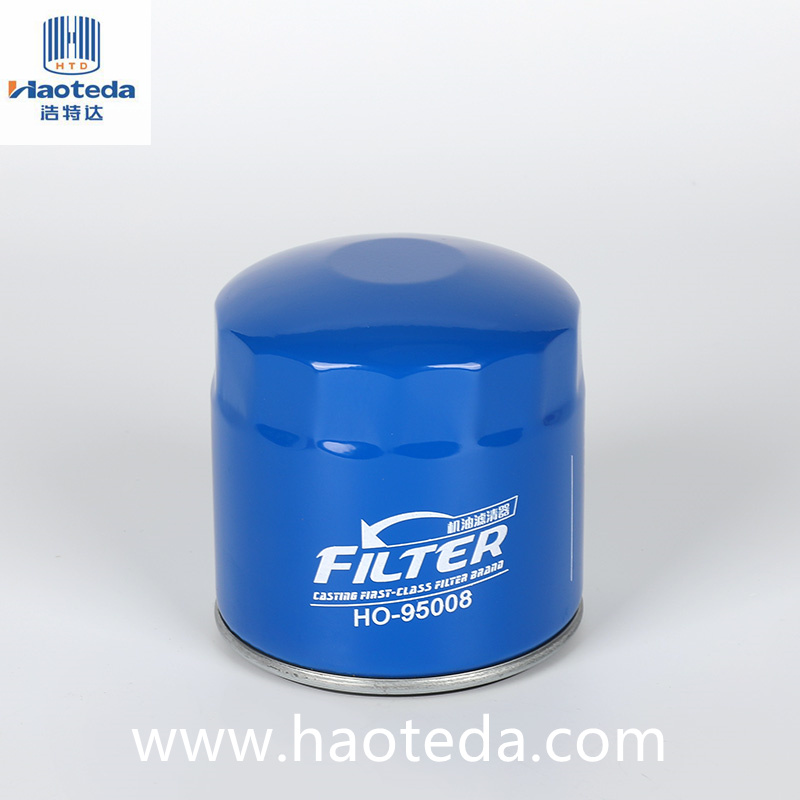Synthetic Blend Media: Striking a Balance
Composition and Construction:
Synthetic blend oil filters blend synthetic fibers with traditional cellulose fibers. This combination enhances the filter's durability and filtration efficiency compared to standard filters using only cellulose. The synthetic fibers contribute to better particle retention and increased dirt-holding capacity, which translates to cleaner oil and improved engine protection over longer intervals.
Performance Characteristics:
Synthetic blend media excel in providing enhanced filtration efficiency without the higher cost associated with full-synthetic options. They are capable of capturing smaller particles than conventional filters, making them a popular choice for drivers seeking improved performance without significantly increasing maintenance expenses.
Cost-Effectiveness:
One of the key advantages of synthetic on oil filters is their affordability compared to full-synthetic filters. They offer a cost-effective upgrade from conventional filters, appealing to budget-conscious consumers looking to enhance their vehicle's filtration capabilities without breaking the bank.
Full-Synthetic Media: Uncompromising Excellence
Composition and Design:
Full-synthetic oil filters are crafted entirely from synthetic fibers, such as advanced glass fibers or other synthetic materials. These fibers are meticulously engineered to deliver uniform pore sizes and structures that maximize filtration efficiency. This design ensures superior particle capture, even for microscopic contaminants, thereby offering unparalleled engine protection.
Performance Superiority:
Full-synthetic media set the standard for filtration performance in oil filters. They boast the highest dirt-holding capacity and filtration efficiency among filter types, making them ideal for vehicles operating in demanding conditions or using high-performance synthetic motor oils. Their ability to maintain clean oil and protect engines from wear and tear over extended intervals underscores their superiority.

Durability and Longevity:
Due to their synthetic composition, full-synthetic filters exhibit enhanced durability and resilience. They are engineered to withstand extreme temperatures and pressures, ensuring consistent performance under varied driving conditions. This durability not only enhances their reliability but also contributes to longer maintenance intervals, reducing overall upkeep costs.
Making the Choice
Considerations for Drivers:
When selecting between synthetic blend and full-synthetic on oil filters, several factors come into play. Budget considerations, vehicle usage patterns, and desired levels of filtration performance all influence the decision-making process.
Budget and Affordability:
Synthetic blend filters offer a balanced solution for drivers seeking improved filtration without a substantial cost increase. They provide effective engine protection and extended maintenance intervals at a more accessible price point.
Performance Requirements:
For drivers prioritizing top-tier filtration performance and uncompromising engine protection, full-synthetic filters represent the pinnacle. They are ideally suited for high-performance vehicles or those subjected to rigorous operating conditions.
Long-Term Benefits:
Both synthetic blend and full-synthetic filters offer extended maintenance intervals compared to conventional filters, thanks to their superior dirt-holding capacity. However, full-synthetic filters may provide longer intervals and potentially reduce overall maintenance costs over time.
 English
English
 English
English Español
Español Français
Français
 +86-139-6774-0263
+86-139-6774-0263









